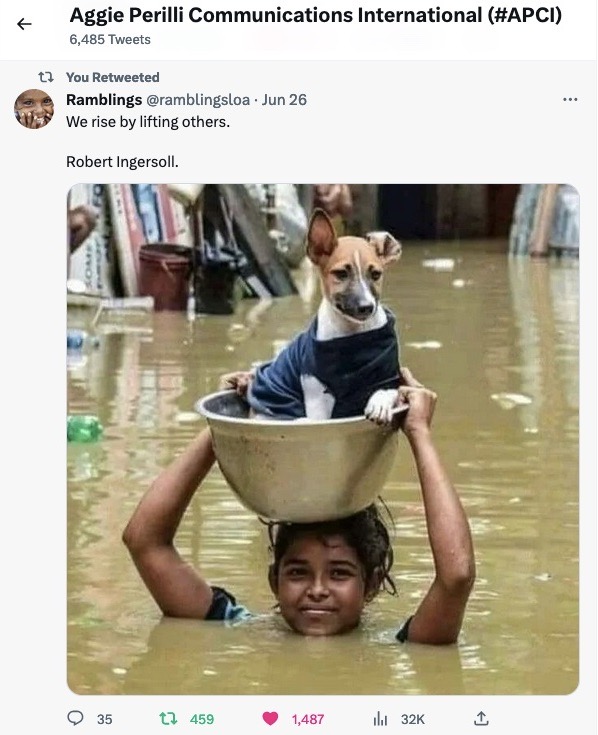 Communicating with Nature
Communicating with NatureAugust 24, 2011
by Aggie Perilli
What We Know:
- In 1979, President Jimmy Carter had solar panels installed on the roof of the White House. Earlier he had predicted: “Unless profound changes are made to lower our consumption of fossil fuels …and use renewables such as solar power, we may feel a mounting pressure to plunder our environment. The energy crisis has not yet overwhelmed us, but if we fail to act quickly, it may.” With the exception of preventing war, Carter called our energy crisis “the greatest challenge our country will face during our lifetime.”
- Later in 2009, New Jersey Democratic Representative Rush Holt called energy derived from fossil fuels and nuclear power unsustainable and a growing health and safety threat. Worse than accidents, he cautioned that Iran and others may use nuclear technology to develop nuclear weapons. Holt proposed safe, farsighted energy policies that included a cap on greenhouse gas emissions; a realistically substantial investment in clean energy; and tax credits for solar, wind, geothermal and similarly safe and renewable technologies.
- Following the Fukushima disaster this year, the Union of Concerned Scientists (UCS) studied nuclear power safety in the United States and found 14 significant events or near misses in 12 states last year. Near misses raise the risk of accidents that can be lethal for workers, neighbors, and the environment. UCS said many of those near misses could have been avoided if reactor owners had corrected violations identified by the Nuclear Regulatory Commission (NRC) months and even years earlier. UCS urges the NRC and reactor owners to eliminate lingering safety and security issues described as “accidents waiting to happen.”
- Physicians for Social Responsibility and 45 other national groups petitioned NRC “to suspend all licensing and activities at 21 proposed nuclear reactor sites in 15 states until after NRC completed a post-Fukushima reactor examination as thorough as that following the 1979 accident at Three Mile Island.” Moreover, petitioners asked NRC to responsibly supplement this life-saving investigation with that of an independent commission.
- In March, German Chancellor Angela Merkel closed seven of her country’s oldest nuclear reactors and accelerated Germany’s conversion to clean energy. Italy reportedly began to phase out nuclear power after the Chernobyl accident in 1986 and closed its last reactor in 1990. This past June, more than 94 percent of Italy’s voters rejected the proposed resumption of nuclear power in favor of renewables, such as solar and wind power.
- Switzerland is phasing out nuclear power now. Austria reportedly became the first country to phase out nuclear power in 1978, followed by Sweden in 1980, Italy in 1987, Belgium in 1999, and Germany in 2000. To further protect health and safety, Austria and Spain enacted laws that prohibit the construction of new nuclear power plants. As of June this year, other countries completely opposed to nuclear power include Australia, Greece, Israel, New Zealand and Norway.
- Some proponents of fossil fuels and nuclear energy claim it’s impossible to meet economic needs without compromising national security and destroying the organic environment that sustains us. Yet Utsira Islanders in Norway have been thriving off the grid for two years. One of the world’s first communities to achieve energy self-sufficiency, Utsira Islanders combined wind power with hydrogen fuel and produced enough renewables to store energy and export excess to the mainland.
- “We must not be selfish or timid if we hope to have a decent world for our children and grandchildren,” Carter cautioned. It’s not too late to build a safe, clean-energy economy. As in Italy, it’s up to voters to take the lead. We must elect politicians demonstrably committed to replace nuclear power and fossil fuels with safe, clean energy without delay. Meanwhile, we must hold the NRC and reactor owners accountable for the strict enforcement of more farsighted regulations than those relied on today. Last year, the President’s Cancer Panel, which included appointees of President George W. Bush, warned that today’s apathetic approach towards regulation is having far-reaching health consequences, especially for children.
Who besides Vermont’s Democratic Senator Bernie Sanders is seeking to prevent disasters with safe, cost-effective renewables now?
Aggie Perilli is president of Aggie Perilli Communications International (APCI).
Note: If you find this post helpful, you can subscribe to this APCI blog at no charge! Thank you for sharing your insights with me here on Facebook and Twitter.


